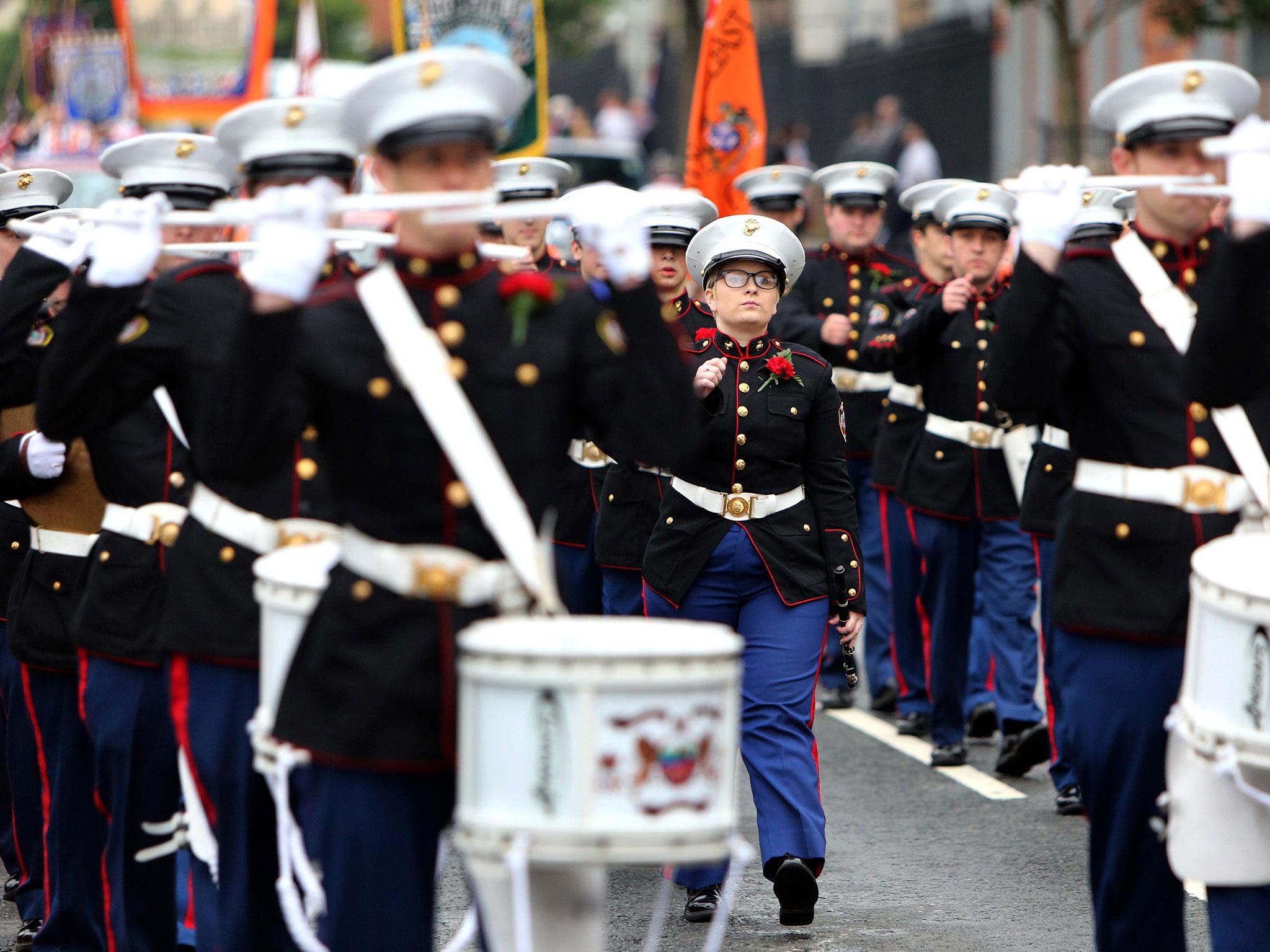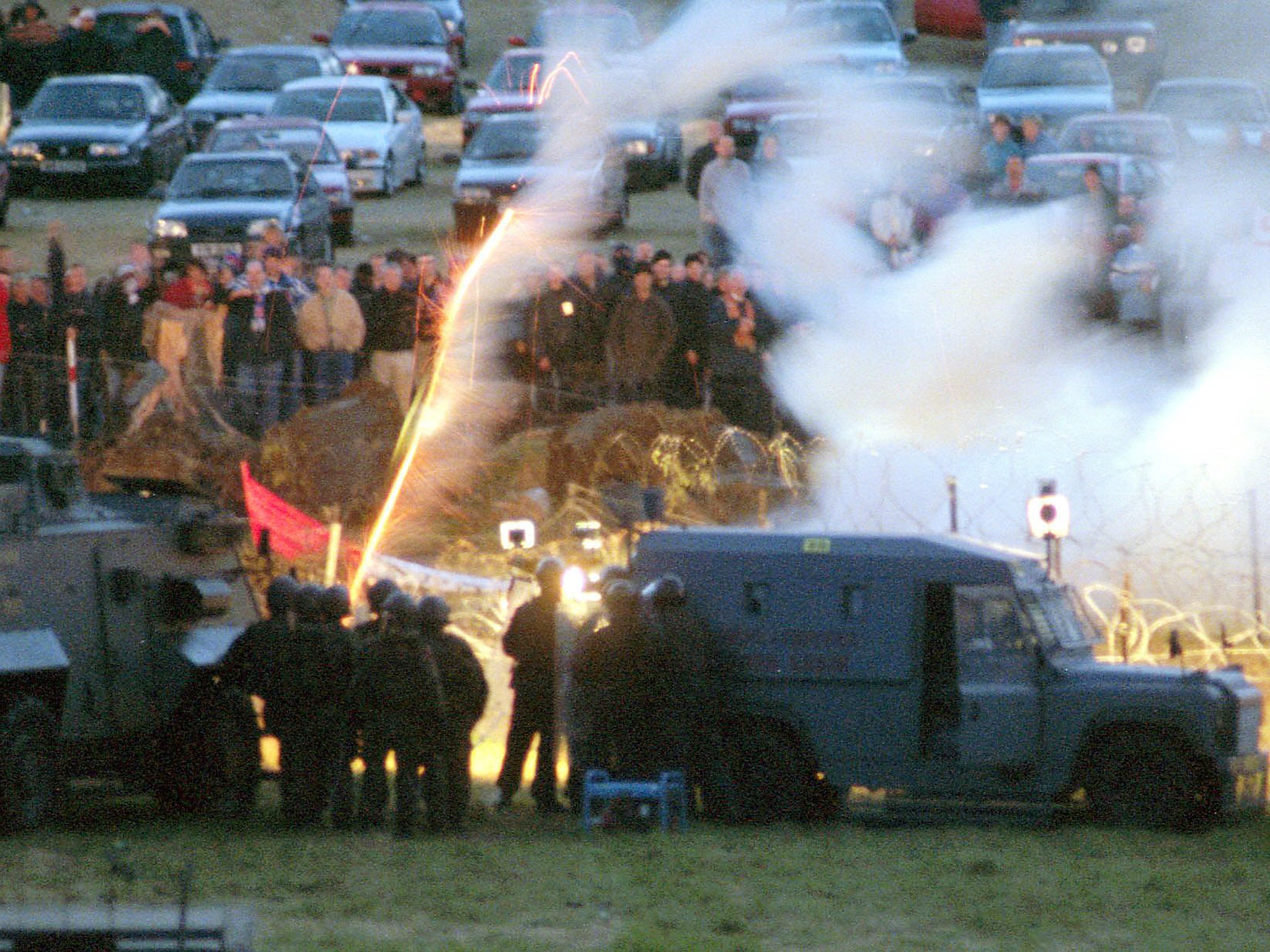Orangemen march 2017: What is it? Who are they? How they link to the DUP?
Supporters of the DUP have called for Theresa May to allow a banned loyalist march as part of their agreement with the Conservatives
Your support helps us to tell the story
From reproductive rights to climate change to Big Tech, The Independent is on the ground when the story is developing. Whether it's investigating the financials of Elon Musk's pro-Trump PAC or producing our latest documentary, 'The A Word', which shines a light on the American women fighting for reproductive rights, we know how important it is to parse out the facts from the messaging.
At such a critical moment in US history, we need reporters on the ground. Your donation allows us to keep sending journalists to speak to both sides of the story.
The Independent is trusted by Americans across the entire political spectrum. And unlike many other quality news outlets, we choose not to lock Americans out of our reporting and analysis with paywalls. We believe quality journalism should be available to everyone, paid for by those who can afford it.
Your support makes all the difference.Every year thousands of people march through the towns and cities of Northern Ireland wearing bowler hats and orange sashes as part of the Orangemen marches.
Questions have been raised about the nature of the marches as the Conservatives enter into negotiations with the Democratic Unionist Party in a bid to prop up Theresa May's weakened Government.
Earlier this week, supporters of the DUP called for the Prime Minister to allow a banned loyalist march as part of the agreement.
What is the Orangemen march?

The march on 12 July sees the Orangemen dressed in bowler hats and orange sashes alongside bands dressed in colourful uniforms.
As they march, they carry banners and flags depicting iconic scenes from Protestant and Orange history.
Union flags are also a highly visible aspect of the marches.
The Orangemen are in favour of Northern Ireland's union with the UK, providing a major point of contention between the marchers and nationalists who want to see a united Ireland.
Where does it come from and why is it controversial?

The march honours an important date for Northern Ireland's protestants as it commemorates the Battle of the Boyne, when William of Orange defeated the Catholic King James II.
But for many Catholics, the marches are seen as contentious and sectarian, with traditional marching routes passing through or near Catholic and nationalist areas.
At the height of the troubles in Northern Ireland, the UK Government was forced to spend millions on security and draft in hundreds of extra troops to try and combat the tensions caused by inflammatory sectarian marches.
How does it link to the DUP?

Many current ministers in Northern Ireland are Orangemen.
The Orangemen are now effectively asking the DUP to use its sudden influence to allow their members to march through the flashpoint Garvaghy Road in County Tyrone.
They are currently banned from marching through the nationalist area of the mainly loyalist town following repeated riots during the Troubles, with protests against the ban culminating in 1998 with the murders of three young boys after their house was firebombed by loyalists.
The DUP was founded in 1971 by Ian Paisley, a firebrand Protestant preacher known for his association with loyalist paramilitaries.
The party is known for its fundamentalist Christian views on gay marriage and abortion.
Protests have been held in London and other cities in the UK by those concerned about the possible influence of the group on the Conservatives and on UK politics.

Join our commenting forum
Join thought-provoking conversations, follow other Independent readers and see their replies
Comments